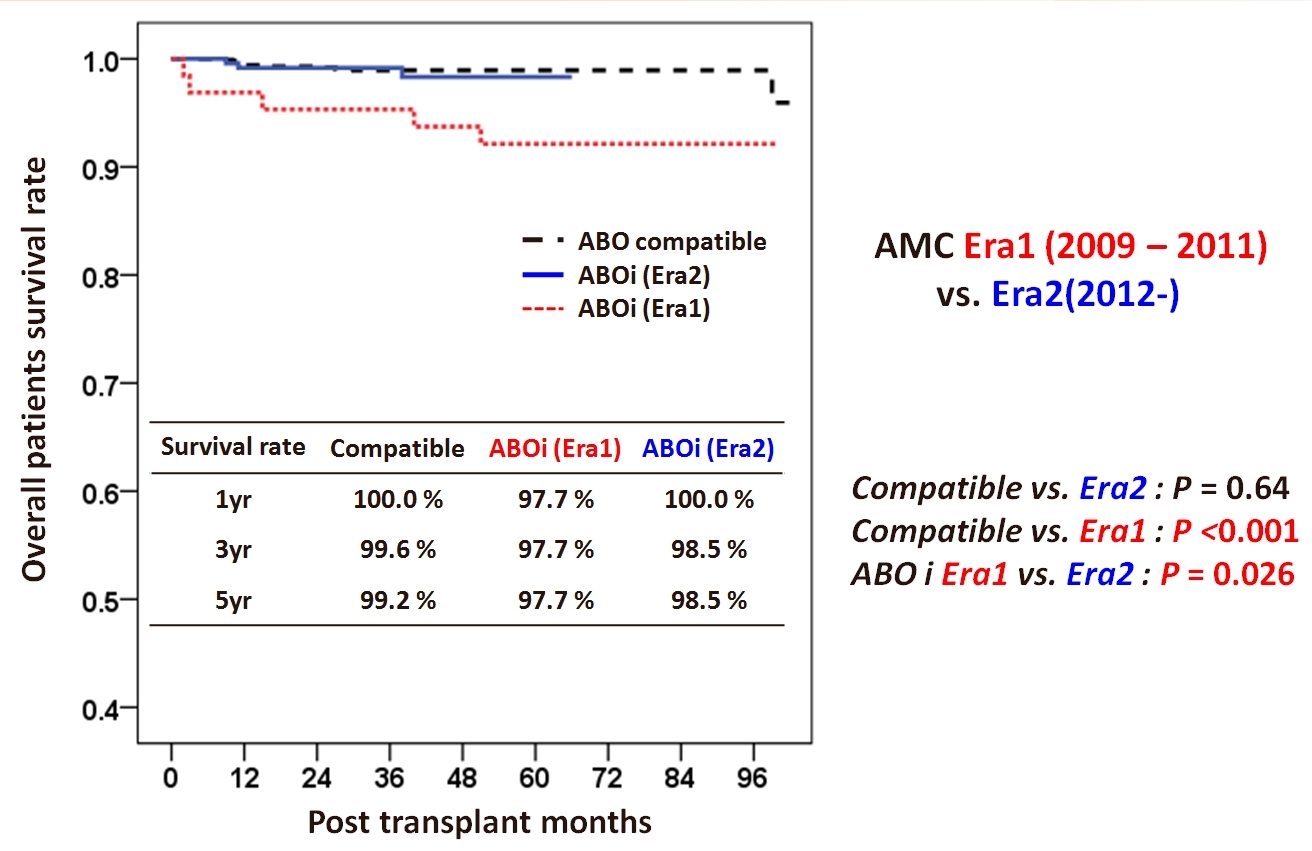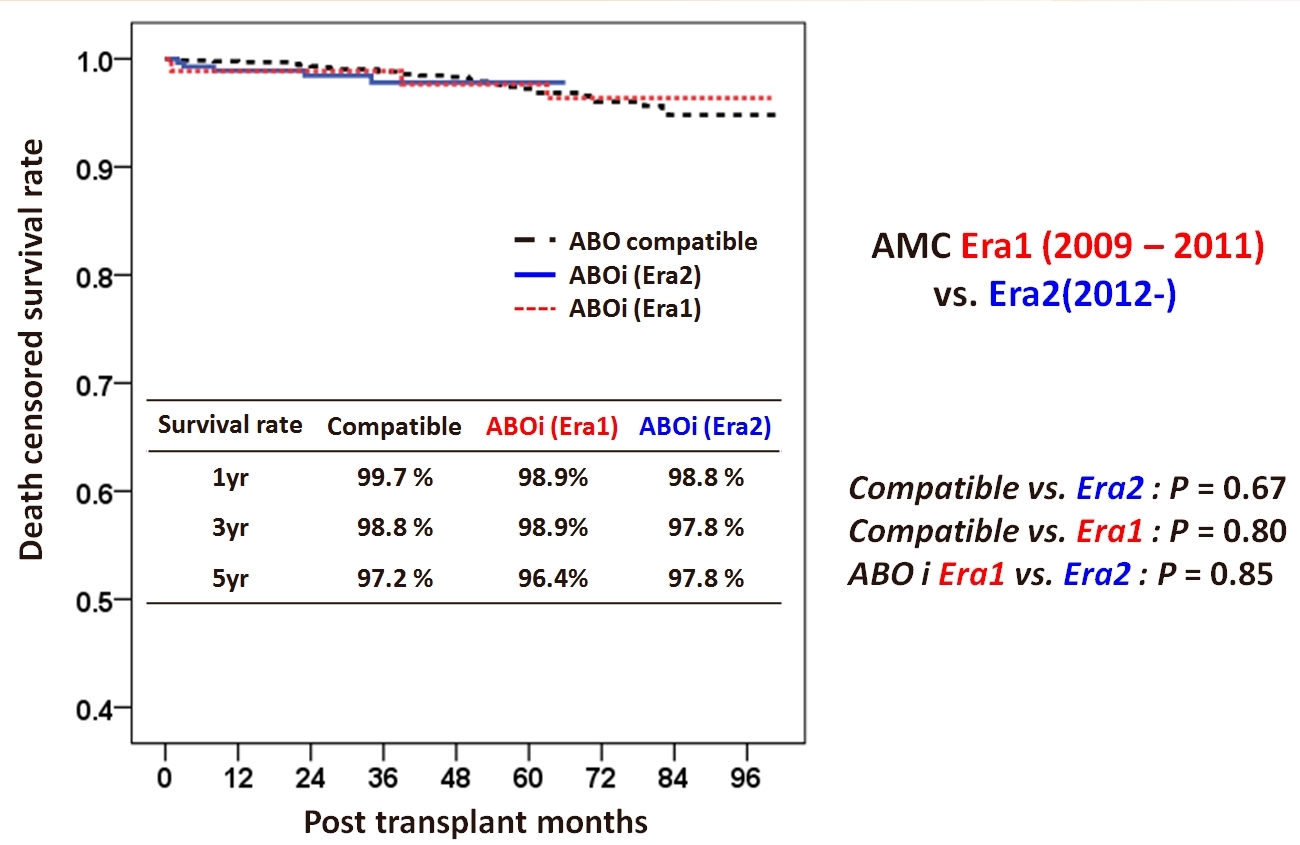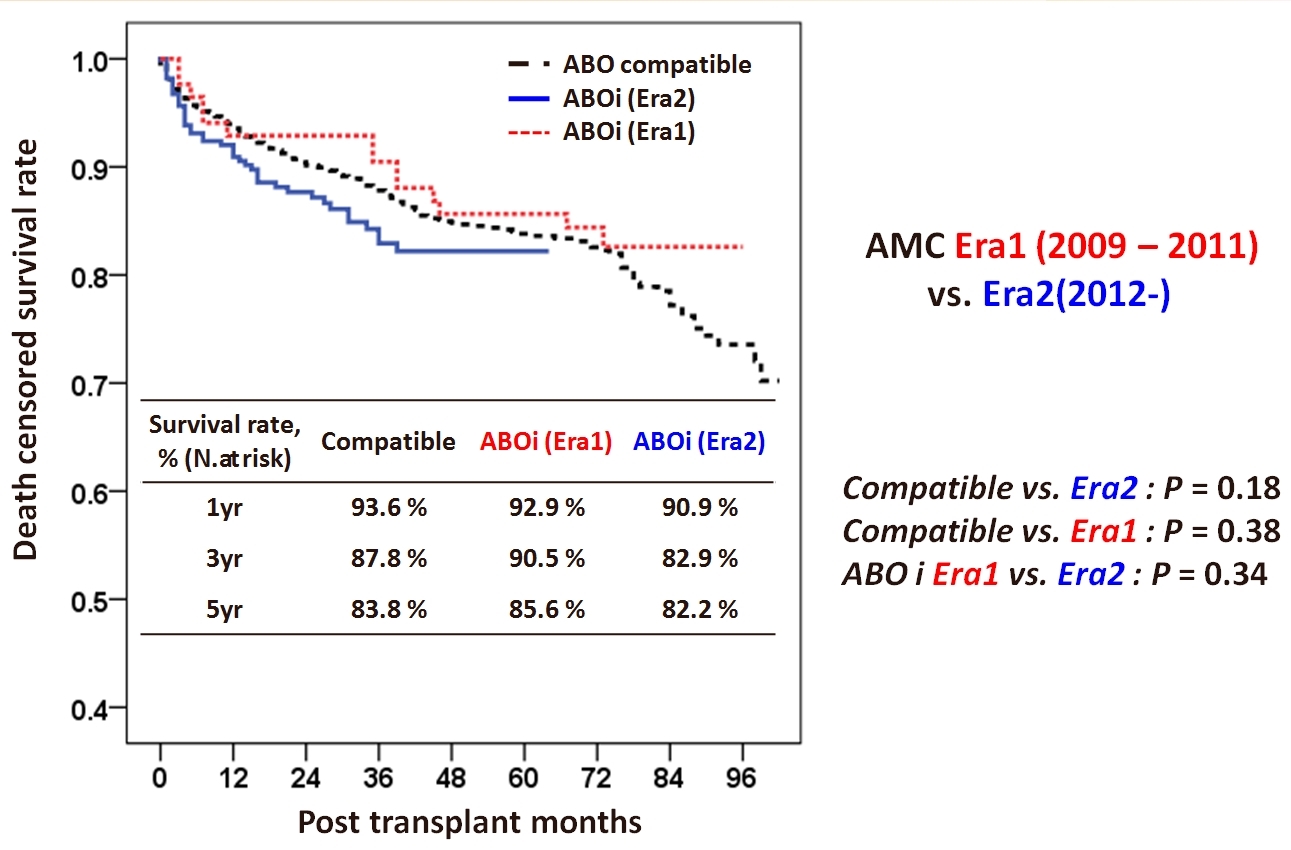Analysis of 400 ABO Incompatible Kidney Transplantations : a Single Center Experience
Hyunwook Kwon1, Young Hoon Kim1, Ji Yoon Choi1, Sung Shin1, Joo Hee Jung1, Min Jae Cho1, Jee Yeon Kim1, Duck Jong Han1.
1Division of pancreas & kidney transplantation, Department of General surgery, Asan Medical Center, Seoul, Korea
Objectives: This study describes the single center experience and long-term results of ABO incompatible kidney transplantation (ABO i KT).
Methods: 400 patients who received an ABO i KT in the period from February 2009 to December 2016 in Asan Medical Center were retrospectively reviewed. After we experienced lethal infectious complications in the first 89 patients (Era1), a pre-transplantation protocol was modified using lower dose of rituximab, selective use of calcineurin inhibitors and anti-metabolite reduction, and prophylactic strategy(Era2).
Results: The overall patient survival rates after ABO i KT at 1, 3,and 5 years were 97.9%, 97.4%, and 95.9%. The death censored graft survival rates at 1, 3,and 5 years were 98.9%, 98.1%, and 97.7%
The death censored graft survival rates at 1, 3,and 5 years were 98.9%, 98.1%, and 97.7% . The rejection free graft survival rates at 1, 3,and 5 years were 91.4%, 85.0%, and 82.6%
. The rejection free graft survival rates at 1, 3,and 5 years were 91.4%, 85.0%, and 82.6% . The overall patient survival rates stratified by era showed a significant difference between era1 and era2 during 5-year follow-up(88.7% vs. 96.7%, P = 0.014) due to infectious complications. Neither was there a significant difference in the 5-year death censored graft survival rates (era1 vs. era2; 98.9% vs. 97.8%, P = 0.85) and the 5-year rejection free graft survival (era1 vs. era2; 85.6% vs. 82.2%, P = 0.34). Infectious complications decreased significantly in era2, including cytomegaloviremia (64.1% vs 30.1%, P < 0.001) and BK viremia ≥ 4logs (15.6% vs 11.3%, P=0.08)
. The overall patient survival rates stratified by era showed a significant difference between era1 and era2 during 5-year follow-up(88.7% vs. 96.7%, P = 0.014) due to infectious complications. Neither was there a significant difference in the 5-year death censored graft survival rates (era1 vs. era2; 98.9% vs. 97.8%, P = 0.85) and the 5-year rejection free graft survival (era1 vs. era2; 85.6% vs. 82.2%, P = 0.34). Infectious complications decreased significantly in era2, including cytomegaloviremia (64.1% vs 30.1%, P < 0.001) and BK viremia ≥ 4logs (15.6% vs 11.3%, P=0.08)
Conclusion: ABO-incompatible kidney transplantation can be performed safely with a successful graft outcome. Modification of immunosuppression according to host conditions is recommended for the prevention of infectious complications.
